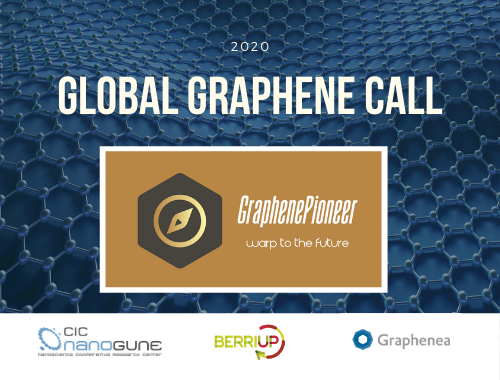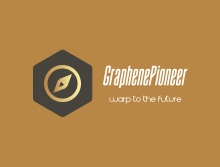Related news by tag Nanotechnology impact
Graphenea's new facilities

At the inauguration of the new headquarters of Graphenea have been present the deputy general of Gipuzkoa, Markel Olano, the mayor of Donostia-San Sebastian, Eneko Goia, the director of the company, Jesus de la Fuente, and the director of nanoGUNE, José M Pitarke, among other distinguished guests.
Graphenea was founded in 2010 as part of a joint venture of nanoGUNE with a group of private investors with the purpose of manufacturing and commercializing high quality graphene wafers and developing technologies based on this material. At present, the company based in Donostia is a world leader in the sector, with 14% of the global market share. Its turnover reaches two million euros in a market with a great potential for growth.
The new facilities have required an investment of three million euros, and include a clean room and a pilot plant of graphene oxide that can produce up to one ton of this material per year. Graphenea currently employs 25 people, mostly women.
Donostia – San Sebastián, a city of (nano) science and technology
The beauty, gastronomy and cultural life of San Sebastian are some of the most outstanding assets of our small city. Nevertheless, following the last virtual issue in ACS nano, San Sebastian also stands as a city of science and technology, specially devoted to the nanoscience field. The present work highlights the contribution of the nanoscience community of San Sebastian to nanoscience and technology.
As described in the editorial of this issue, some of the main representatives of the nanoscience community in San Sebastian stand together, namely, the Nanoscience Cooperative Research Center (CIC nanoGUNE), the Donostia International Physics Center (DIPC), the Basque Center for Macromolecular Design and Engineering (Polymat), the Center for Cooperative Research in Biomaterials (CIC biomaGUNE), the Technology Centers Cidetec, CEIT, and Tecnalia, and the Health Institute Biodonostia along with the Centro de Física de Materiales (CFM), a joint initiative of the University of the Basque Country (UPV/EHU) and Consejo Superior de Investigaciones Científicas (CSIC).
This research force has contributed considerably to ACS Nano with more than 100 publications during the past decade, some of which have already had significant impact and are highlighted in this virtual issue.
As reported by the authors “This collaborative work has been combined with our commitment toward industrial development of nanotechnology both locally and worldwide, which has led not only to an increase in top-notch industrial research in our community but also to the launch of a number of promising nanotechnology-based start-up companies”.
The entities highlighted above, express they are confident that, with the continuous and synergetic support from Spanish and Basque authorities, the research activity in the area of nanoscience and nanotechnology will continue to flourish in our beautiful city.
The company GraphenePioneer winner of the first Global Graphene Call

GraphenePioneer will be able to take advantage of a customized acceleration program between June and August 2020 organized by BerriUp —experts in business acceleration—, CIC nanoGUNE —the Basque Nanoscience Co-operative Research Center—, and Graphenea —nanoGUNE’s first start-up and a world leader in graphene production—. Thanks to the collaboration between these three organizations, the company will benefit from personalized coaching to boost the marketing of its graphene-based products.
This is the first time that CIC nanoGUNE, BerriUp, and Graphenea have joined forces to promote a call, the Global Graphene Call, designed to develop business ideas linked to graphene.

